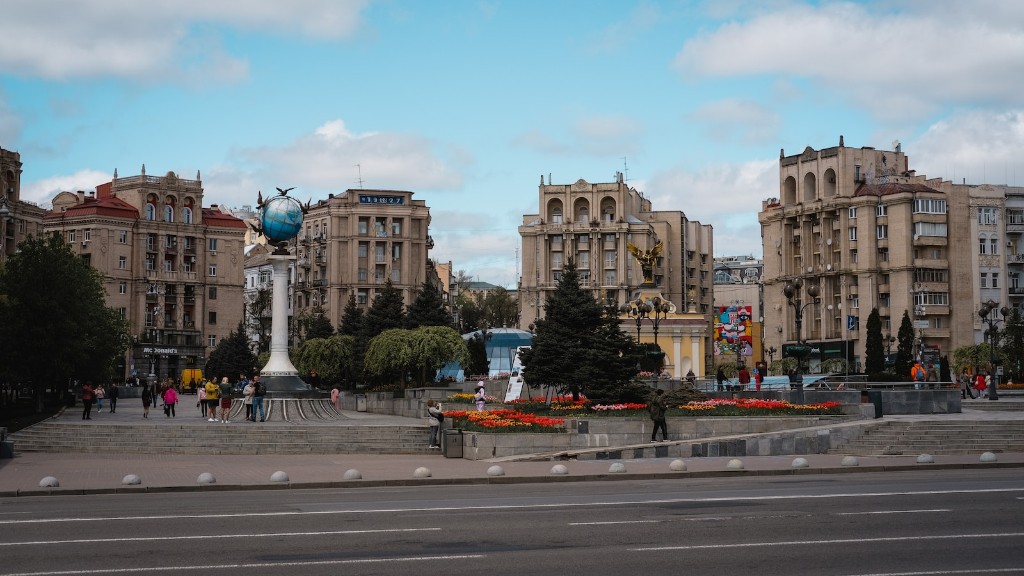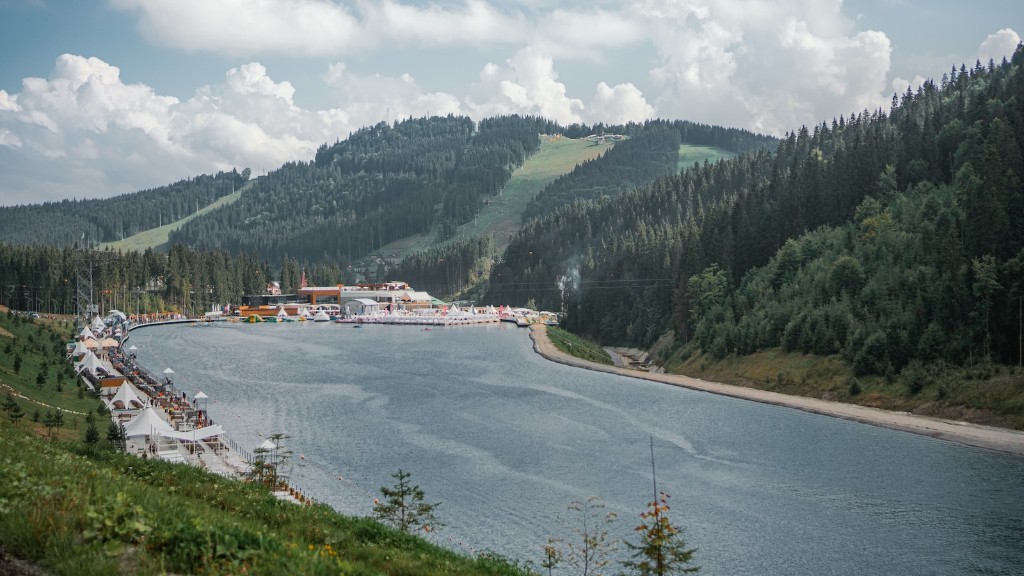The independence of Ukraine has been a significant historical event that set the country on a path of autonomy from outside rule and self-determination. After centuries of foreign rule under various empires, Ukraine was able to achieve independence through a combination of numerous factors. Most notably, the victory of the Ukrainian People’s Republic in the Russian Civil War, the fall of the Soviet Union, and finally, the Declaration of Independence in 1991.
The starting point of Ukraine’s independence journey traces back to the late 19th century, when the Ukrainian People’s Republic championed Ukrainian national sentiment and initiated a drive towards a nation-state. This was during a time of Russian oppression and domination, when the Russian Empire had remained the dominant power in Ukraine for centuries. Following a process of reform and liberalization, the Ukrainian People’s Republic’s independence was declared in July 1917. However, this nationalist rise was short-lived, with the Bolshevik revolution quickly replacing it.
Ukrainian national identity and sentiment were further bolstered by the Soviet Union’s weakening during the 1980s. In 1989, the “Revival of the Nation” movement was formed to advocate Ukrainian language and culture, while Ukrainian nationalists championed a nation-state, free from Soviet control. In 1991, the nationalist-backed April Declaration of National Independence was issued and in August of that same year, 91.32 percent of Ukrainians supported declaring independence from the Soviet Union. Finally, the Supreme Council of Ukraine proclaimed and the newly independent Ukraine was born.
The nation’s independence has been, and continues to be, a source of pride and resilience for Ukrainians. As outlined by experts, a key motivation of nationalists to fight for independence was to escape the oppressive Soviet regime and regain cultural identity. Academic research provides evidence of a strong shared sense of national identity within Ukraine. Ukraine’s post-independence success is, nowadays, also attributed to its resilient people’s ability to maintain economic stability and continue life despite the challenges of the transition from communism.
The impact of Ukraine’s independence has been felt both in Ukraine and around the world. Globally, Ukraine’s achievement of self-determination helped boost the notion of countries recovering their sovereignty after decades of oppressive and authoritarian regimes. In Europe, it has been credited with prompting a wave of democratization and reinforcement of the principle of collective security. In Ukraine, its independence has been greeted with a sense of national pride and greater unity among the people. It also paved the way for the country’s opening up to international trade, investment, and democratic values.
An important consequence of Ukraine’s independence has also been the impact it has had on its relations with neighboring countries. After declaring its independence, Ukraine signed friendship treaties with numerous countries, including the United States, the United Kingdom, and France. It has also formed strong economic and political ties with various nations both in Europe and elsewhere. These partnerships have helped Ukraine with its integration into international, economic, and institutional frameworks.
The fight for freedom
The fight for Ukrainian independence has been a long and arduous journey, beginning with the nationalist uprisings of the late 19th century. Led by prominent figures such as Mykhailo Hrushevskyi and Yevhen Konovalets, the Ukrainian People’s Republic played a key role in advocating Ukrainian nationalism and identity, pushing the idea of an independent nation forward. The Soviet Union’s weakening during the 1980s also bolstered sentiments of independence, resulting in a strategic and nationwide campaign to advance Ukrainian nation-statehood.
The May 1991 All-Ukrainian Referendum was a game-changer in Ukraine’s bid for independence. It was the first time Ukrainians were asked to cast their vote on independence, and 91.3 percent said yes. Following this, Ukrainian independence was declared on August 24, 1991, with support from the United States and United Kingdom. Numerous international agreements were subsequently signed, recognizing Ukraine’s sovereignty and official independence.
The struggle for independence was a long and arduous process. It was met with fierce resistance from dominant empires and tough suppression from the Soviet authorities, who sought to maintain their control over Ukraine. Nevertheless, Ukrainians persisted in their commitment to nation-statehood, backed by significant international pressure and practical measures.
The impacts of independence
The impact of Ukraine’s independence has been far-reaching, both domestically and internationally. From a domestic perspective, it has been credited with promoting a shared sense of national identity, while internationally, it has triggered a wave of democratization in Europe and a renewed commitment to collective security in the world.
The freedom will forever remain as a beacon of hope for Ukrainian citizens; for example, greater autonomy has enabled Ukrainians to preserve and express their culture and tradition. Not only has this created a strong sense of patriotic pride but it has also enabled Ukraine to open up international trade, investment and to become a central hub of democratic values.
Furthermore, Ukraine’s independence has allowed it to forge strong relationships with neighboring and global countries. Ukraine has managed to sign cooperation agreements and even bilateral trade deals with multiple countries, resulting in a greater visibility for Ukraine in international realms and helping it follow in the footsteps of its Western counterparts.
In addition, post-independence Ukraine has been credited with an evolution in governance and economic policies, introducing more transparency and international involvements. This further strengthens freedom for Ukrainians and allows them access to international markets and improved infrastructure.
Difficulties Ukraine still faces
Like any independent nation, Ukraine faces a great variety of difficulties, ranging from persistent issues with corruption and political unrest to the perennial threat posed by outside forces and continued regional disputes. Moreover, the weak healthcare system and chronic shortages of basic necessities, such as gas and water, are proving to be difficult challenges for Ukraine in terms of securing and safeguarding its independence.
Despite economic hardship, Ukraine has managed to remain resilient and keep pace with the challenges of independence. Economic growth was achieved during the early 2000s, although certain issues like an inadequate economic infrastructure, frequent changes in government and rampant corruption still remain. Further, the 2014 Revolution of Dignity and the ongoing conflict in the Donbas region occupy much of the nation’s focus and will continue to be stumbling blocks for Ukraine’s progress.
Ukraine is also constantly vulnerable to international interference and external mechanisms that threaten its national interests. The country is subject to interference from Russia and China, the two most powerful nations in Eurasia. Similarly, Ukrainian politicians are still divided by different sets of principles and attitudes towards neighboring countries and global institutions, hampering the nation’s efforts to fully thrive in the global economy. Finally, measures to prevent illegal migration, especially from Russia, remain inadequate.
Conclusion
Ukraine’s fight for independence is an inspirational story of national spirit and resilience. An important milestone in the history of Ukraine, it helped elevate national identity and enabled the country to achieve greater autonomy and prosperity. Although the path to self-determination is littered with obstacles, the ability of Ukrainians to stay true to their cause and strive for a better future, despite the overwhelming challenges they often face, makes them the true heroes of Ukraine’s independence.




